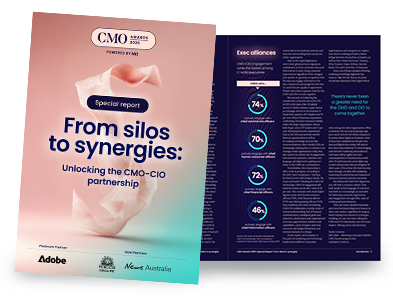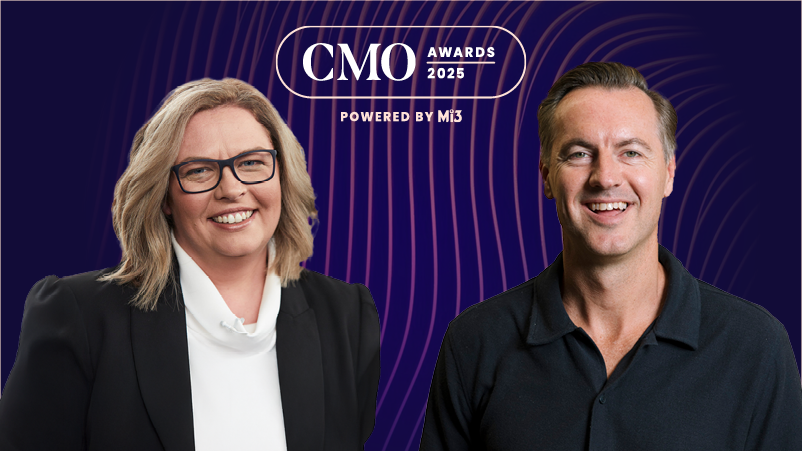Optimistic, curious, everywhere: Those are the three words Catherine Anderson, CMO of Origin chooses to describe her approach to marketing leadership.
And they all manifest in knowing the power of saying no as a marketing leader to an excellent or what might be construed as a ‘bold’ idea. Why? Because she believes it “allows for something just so slightly more excellent to exist”.
The experienced marketing leader, who spent more than seven years with green energy company, Powershop, including nearly four years as its chief customer officer, joined Origin in 2022 as GM of strategic initiatives. She was then appointed GM of marketing in late 2022, followed by CMO in November last year.
Effective marketing strategy
Over the last year, the energy provider’s marketing function under Anderson’s stewardship has been overhauling three key components of its media approach: Media strategy and buying, data platforms and ways of working.
“Our intent was to optimise our marketing acquisition programs with highly personalised offers and stronger customer experiences, ultimately to deliver better cost to acquire outcomes,” explains Anderson.
Success was bolstered by the introduction of AI utilisation, marketing mix modelling and intelligent real-time bidding strategies, while also in-housing digital advertising capabilities.
In the first phase, media mix modelling was adopted to analyse and learn from channel performance. Secondly, by adding in an AI-driven scenario builder, product marketing teams are able to leverage baseline insights gained by the model and now perform ‘what-if’ analysis to optimise channel mix and investment that maximise marketing outcomes.
“In a year where we were rewriting our brand strategy and creative, this work was important to complement that and support our product teams with commercial gains,” Anderson says. It has paid off, with channel contribution increasing, and growing returns on product marketing funnel investments.
All this while completing a large structural change project within marketing focused on cultural transformation. Knowing how important it is for marketing to be able to work in the face of ambiguity, Anderson is keen to ensure as much adaptability in her Origin energy marketing team as possible, and has brought in more adaptive ways of working to help.
“With marketing offering a more centralised service, we have rolled out simple, adaptive work styles that take some guidance from Agile, but are quite fluid and responsive – that’s important in an organisation with multiple working styles,” she says. “We have worked through many all-team workshops, met hurdles and points of friction by addressing them using a Feature – Advantage – Benefit [FAB] model to onboard teams.”
From utilising fortnightly sprints as a common language, to rolling out new technologies such as Asana and Confluence, marketing has spent considerable time designing workflows, quarterly planning adherence, accountability constructs and training so it’s able to have tough prioritisation conversations and deliver commercially.
As she stepped into the first month trialling all new tools and processes at the time of CMO Awards submission, Anderson is quietly optimistic about how it’s come together.
“Through our changes, we have been able to reduce our costs by a double-digit percentage, with no negative impact to our stakeholders or business targets and an increase in team engagement,” she says.
Discerning decision making
Achieving marketing excellence undeniably means knowing what you’re about – then connecting it to what value you can bring to your unique organisation. In this vein, part of Anderon’s transition of marketing has been about introducing the ‘70-20-10 Budget Challenge’. This initiative asked teams to firstly focus 70 per cent of budget on standard work to meet business targets, then put 20 per cent to initiatives that enhanced the core, such as exploring new channels or investing in research to make the BAU work harder. The last 10 per cent was pooled into an ‘initiatives’ fund any marketing staff member could pitch for – whether it was for things they thought might fail, or had just never been tried before.
“As a new starter in marketing at Origin, I was using this 70-20-10 challenge to show I was comfortable with certain risk levels, trialling new things and team autonomy,” explains Anderson.
Efficiency and cultural benefits came with it. With a renewed focus on core budgets, marketing achieved its sales targets. But this was balanced with energy for innovation and learning. Having that pure innovation fund allowed the marketing team to fund a new customer segmentation tool and attempt its first ever all-in product and brand presence at a large electric energy event.
“However, it was smaller initiatives directly benefiting customers that stood-out, such as creating our own Origin door-snakes to send to customers to help stop drafts at home – 40 per cent of heating can be lost through drafts – and supporting community initiatives in natural disaster-impacted areas,” says Anderson.































